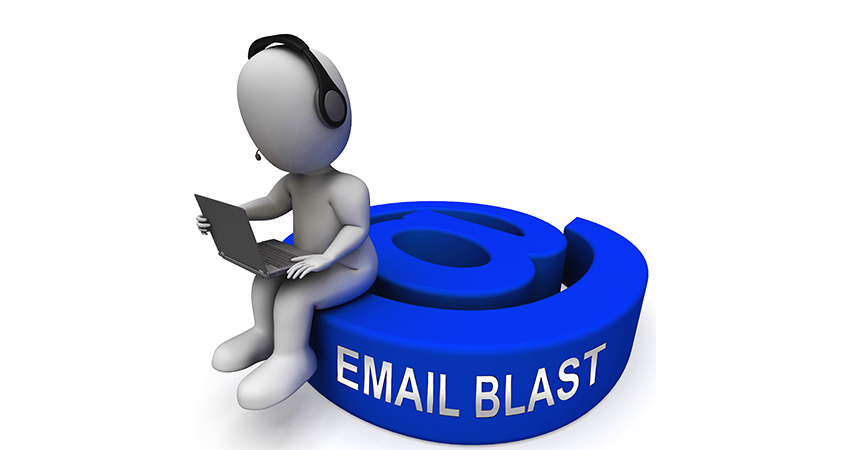In the month of July, retailers sent too many mass emails, with top offenders including Target, Saks and Neiman Marcus, according to data analysis from SmarterHQ that also noted about three-quarters of millennials are frustrated with too many marketing emails.
Target took the lead by sending 62 emails, followed by Saks with 47 and Neiman Marcus with 39 emails.
The study found millennials prefer just one to three marketing emails per month, yet a majority of retailers are still blasting their customers with them. Fifty-eight percent of customers say brands email them about products they would never buy, and 28% say brands send too many discount and sale notifications, representing a majority of those received.
SmarterHQ selected and grouped top membership-only, department store and digital native retailers. The researchers signed up for each company’s email newsletter, then added two items to the cart and heavily browsed a specific category.
“Of all the marketing channels/strategies, email remains the cheapest to implement and consistently produces the highest engagement,” said Michael Osborne, CEO of SmarterHQ. “It makes sense why email blasts are still strongly adopted.”
Osborne said brands are used to the “cash lever mentality” associated with blasting discounts and promotions to their customers on almost a daily basis, because many still see a large ROI, and half of customers say it’s their preferred channel.
The problem with emails, he said, is that retailers are overcommunicating and exhausting customers’ inboxes, making them blind to what’s being offered and creating disengagement because they don’t think brand understands them or their preferences.
The study found a lack of personalization in the first few weeks after signup. This contradicts the fact that 79% of retail marketers say they are investing in personalization tools, more than any other industry surveyed.
All of Walmart’s emails, for example, were discount focused, SmarterHQ found, but not personalized to products or brands consumers interacted with at signup. Target and Home Depot were the only two top retailers that personalized some emails based on site interactions. Besides the opt-in email, Best Buy sent zero emails, the same as Apple. Not a single retailer promoted BOPIS or shipping/delivery.
“Personalization is one of the biggest challenges overall,” Osborne said. “Catering messages to individual customers over the masses can seem like a daunting task, one that requires more time, data and resources than many retail marketers have access to right now.”
The study found 70% of millennials are frustrated by irrelevant emails. It’s important for retailers to prioritize personalization and be more accurate with targeting based on behaviors and interactions, especially since 72% of consumers say they now only engage with marketing messages tailored to their interests.
“Consumers want emails that are relevant, timely and accurate to their specific needs,” said Osborne. “That could include sale notifications on previously carted item, items they have wish listed or previously browsed items or categories, recommendations based on their specific site interactions or previous purchases and notifications on products left in their cart or new products based on their interests.”
In the 39 mass emails Neiman Marcus sent in July, none were personalized to the customer’s product or category interest, SmarterHQ found. The study found that women were sent emails about men’s shoes/categories, highlighting free shipping, BOPIS and free returns in each one.
Beauty brands were much lower on the email cadence. Sephora for example personalized both emails sent. Saks sent the highest number of personalized emails, at 17. Department stores pushed the highest rate of delivery/shipping messages.
The study found that most of the retailers tracked didn’t mention free shipping or a shipping discount, BOPIS or fast delivery in their emails. This was interesting as retailers are competing with Amazon’s fast fulfillment. The study found 62% of consumers unsubscribe from a brand because of high shipping costs.
Ninety percent of consumers regularly browse online and purchase in store, the study found. Of all the retailers tracked, digitally native brands (Amazon, Warby Parker, Bonobos) sent the least number of emails, with Amazon sending none, and personalized at least half of them. None of these companies pushed a delivery/shipping message.
Ninety percent of consumers are willing to share behavioral data for a cheaper and easier shopping experience, SmarterHQ found.
Costco sent 14 emails, and was the only retailer to mention holiday in a July email. Of the 14 emails Costco sent, not a single email was personalized to its interactions on the site.


Good study..Neimans and Saks totally over email…